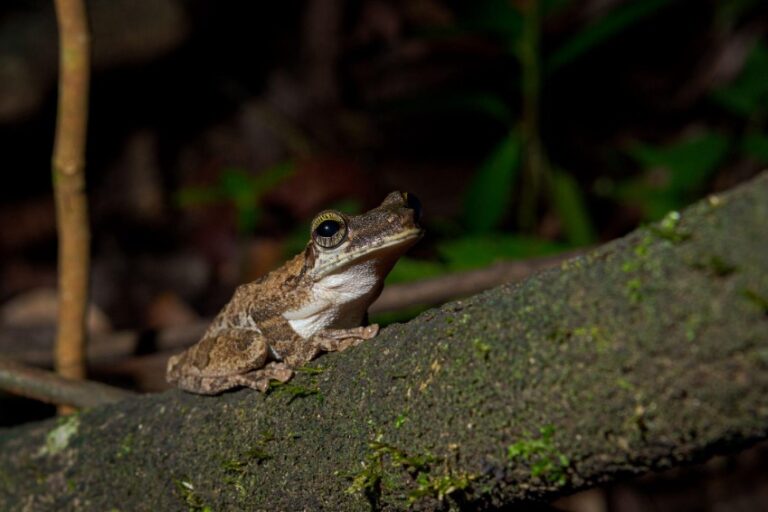The experience of watching your groceries slide across a supermarket checkout counter is almost universal. In this everyday process, an electronic device scans the barcode and identifies each product. There’s a technical explanation behind the “beep”: the eyes can’t see it, but the device emits a beam of electromagnetic waves that measures the amount of light reflected back by the item. This signature is unique to each item, allowing us to tell them apart. Known as near-infrared spectroscopy (NIR), the technology is also used to analyze samples of different materials and has many applications: for quality control in agriculture, or for monitoring blood oxygen levels in the medical field. Would it be possible, then, to reproduce this common scanning practice to identify species in tropical forests, such as the Amazon? Science has the answer. As the sun sets, the dense green area of the Mamirauá Sustainable Development Reserve in Brazil’s Amazonas state darkens in the blink of an eye. With the disappearing of the light comes the buzzing of carapanãs, as the various species of mosquitoes are called in this region. The noise accompanies Kelly Torralvo, a senior researcher in the Terrestrial Vertebrates Ecology Research Group at the Mamirauá Institute. Walking slowly along a trail with her flashlight, she searches for reptiles and amphibians among branches and leaves. She collects the animals and takes them back to the laboratory at the field base located in the reserve. There, with the help of a device that uses NIR technology, researchers “scan”…This article was originally published on Mongabay
Search
Recent Research
Want your Blog Article featured on our website?
Research
Featured News
Explaining Katsina’s Massive Leap to 2nd Position in the 2025 Climate Governance Ranking
In 2024, during the first edition of the Subnational Climate Governance Performance Rating and Ranking,
COP30: Firm to connect institutions with international climate finance opportunities
SISTME, a climate change and biodiversity conservation consulting firm based in Argentina, has offered to
From resistance to planetary governance, Indigenous women redefine global climate action
While world leaders negotiate behind closed doors in the Blue Zone of COP30, Indigenous Women
Sahara Group Foundation launches 16th Sahara Go Recycling Hub to boost environmental sustainability, economic empowerment
Sahara Group Foundation, the corporate social impact arm of Sahara Group, has commissioned its 16th
Climate finance is the lifeblood of climate action – Simon Stiell at COP30
Remarks delivered by UN Climate Change Executive Secretary, Simon Stiell, at the third High-Level Ministerial
UNDP, REA, GEF commission Plateau solar mini-grid to power agricultural value chains, empower rural communities
The United Nations Development Programme (UNDP), in partnership with the Rural Electrification Agency (REA) and
COP30: Africa urges world leaders to turn pledges into action
Africa has called on the world leaders to turn their pledges into action regarding the
Thousands join global marches calling on govts at COP30 to deliver climate justice
An estimated 30,000 people marched through the Brazilian city of Belém on Saturday, November 15,


